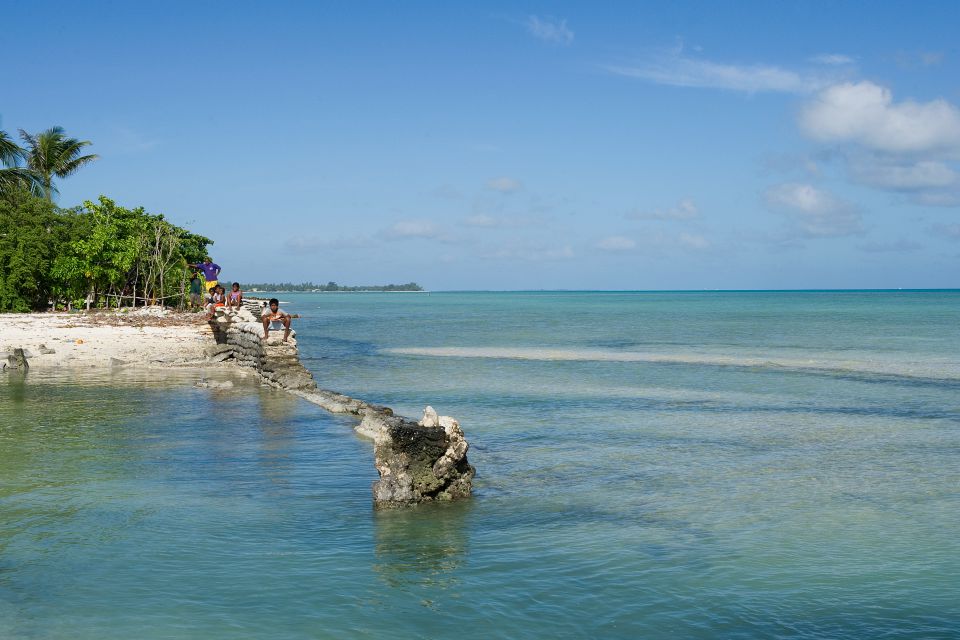"We have seen countless instances of climate change multiplying interlinked threats in small island developing states."
Statement by Ambassador Matthew Rycroft of the UK Mission to the UN at the Security Council Open Debate on Peace and Security Challenges facing Small Island Developing States

Thank you Mr President for convening this important and unique debate. I thank the Secretary-General and the Prime Ministers of Samoa and Jamaica, and the Finance Minister of the Seychelles for their instructive briefings, and all the other Ministers for their presence.
Let me begin, Mr President, by applauding your initiative in bringing this issue to the Security Council. Small island developing states are a valuable part of our diverse United Nations family, forming over a quarter of our membership. From the Caribbean to the Pacific, these states are important partners on so many issues; whether trade, migration, tackling crime. And through membership of organisations like the Commonwealth, many bring shared history and values to bear on issues of mutual interest and concern.
But as the Secretary-General and the briefers have made clear, small island developing states face significant challenges that are directly relevant to the business of this Council. Vulnerability to natural disasters and food and energy insecurities can all have a disproportionate and destructive impact on their development. In Grenada in 2004, Hurricane Ivan caused damage that cost double the island’s entire GDP. In March this year, cyclone Pam left thousands homeless in Vanuatu and other Pacific Islands. And sadly this Council requires no introduction to the damage caused by the 2010 earthquake in Haiti - the consequences of which Haiti is still dealing with today.
It is because of these vulnerabilities that small island developing states are often the first countries to face the impact of emerging global problems. They can be a bellwether for us all. So it is incumbent on this Council to pay close attention to their situation and offer our support in response. The challenges they face, if left unaddressed, could eventually challenge us all.
Climate change is the clearest example. We have seen countless instances of climate change multiplying interlinked threats in small island developing states. For example, in Tuvalu, sea level rises, and in Palau, coastal erosion have degraded arable land and undermined food security. In Pacific regions, ocean acidification has damaged fish stocks, impacting both food security and economies. And in the Marshall Islands, changing weather patterns have increased extreme weather events like cyclones and king tides.
If unchecked, these factors can lead to mass migration. Kiribati is already buying land in Fiji to help secure their future. We are already seeing real damage to economies, lost development gains, setbacks to eradicate poverty and an increase in piracy and arms trafficking. These challenges affect small islands directly; they place additional burdens on neighbouring countries and they can damage interconnected economies globally.
As an island nation ourselves, the United Kingdom will not be immune to such climate pressures. Nor will we be passive in the face of the climate challenge. That’s why we’ve committed $6 billion to climate finance between 2011 and 2016. It’s why we’ve pledged $1.2 billion to the Green Climate Fund and are committed to spending 0.7% of our national income on development. The risk climate change poses goes beyond our shores and those of small islands. Left unaddressed, climate change could constitute one of the gravest threats to international peace and security for generations.
Mr President,
It’s clear that we all need to make climate fragility a key consideration in our foreign policy planning, particularly in our partnerships with small islands.
For it is through partnership that the United Nations can offer the greatest support to small islands. Through engaging with bodies such as the Alliance of Small Island States, the Pacific Island Forum, CARICOM, the Commonwealth, we can share our collective expertise to deal with these issues together. We saw the benefits of this approach at last year’s SIDS Conference hosted by Samoa.
There are some further opportunities for partnership in the months ahead. Just a week before the Paris Summit, many small island states will take part in the Commonwealth Heads of Government Meeting where they will discuss climate change. A strong Commonwealth message on this issue ahead of Paris would be a welcome call for wider action.
And beyond climate change, I look forward to the United Nations General Assembly Special Session on Drugs in April next year. Issues of organised crime and illicit financial flows linked to the drugs trade are of particular concern to many Caribbean small islands. Here too we need to recognise in this Council the importance of international co-operation to tackle organised crime and the threat it poses to the stability of states.
So, let me conclude, Mr President, by thanking you again for bringing this issue to the Council. It is an excellent example of how the Council, by working with partners, can look ahead and identify risks upstream. In doing so, we can pre-empt issues that could lead to instability and conflict, and address them together. Conflict prevention in action. We hope we will continue this approach with small island developing states in the future.
Thank you.